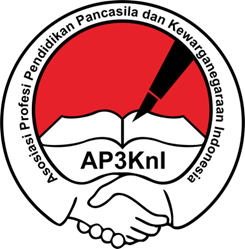Youth Apathy in Political Contest: A Case Study in the 2020 Gowa Regency Head Election
DOI: https://doi.org/10.26618/jed.v7i1.6296
Apatism, Youth, Contestation, Participation, Apatis, Pemuda, Kontestasi, Partisipasi
Abstract
This study examines the political apathy that plagues youth in Gowa Regency. Political apathy is an indifference and lack of interest in politics. This research was conducted to explore the causes of apathy and alternative solutions to these problems. The apathy that afflicts young people is a serious problem that must be solved. This is because they have intellectual capital that can create social change for the better. This change can occur if youth actively participate in each stage of the contestation. The research used is qualitative research with a case study approach. Informants were selected by purposive sampling, consisting of elements of youth organizations, apathetic youth groups and the government. Collecting data through document studies, observation, in depth interviews, focus group discussions and documentation. Analysis uses the Miles and Huberman model, namely data reduction, data presentation and conclusion drawing. The results show that the causes of youth apathy towards politics include the lack of knowledge of the position of youth in development, a bad political image, the influence of the family/friendship environment and the contestants are only followed by one pair of candidates. Then alternative solutions that can be done to minimize apathy are to increase education or community-based political socialization and strengthen youth organizations as a forum for youth to develop themselves.
Penelitian ini mengkaji tentang apatisme politik yang melanda pemuda di Kabupaten Gowa. Apatisme politik merupakan sifat acuh tak acuh serta tidak memiliki ketertarikan terhadap politik. Penelitian ini dilakukan untuk menggali penyebab apatisme dan solusi alternatif atas permasalahan tersebut. Apatisme yang menimpa kaum muda merupakan persoalan serius yang harus ditemukan solusinya. Pasalnya, mereka memiliki modal intelektual yang dapat menciptakan perubahan sosial ke arah yang lebih baik. Perubahan ini dapat terjadi jika pemuda berpartisipasi aktif dalam setiap tahapan kontestasi. Penelitian yang digunakan adalah penelitian kualitatif dengan pendekatan studi kasus. Informan dipilih secara purposive sampling, terdiri dari unsur organisasi kepemudaan, kelompok pemuda apatis dan pihak pemerintah. Pengumpulan data melalui studi dokumen, observasi, in depth interview, focus group discussion dan dokumentasi. Analisis data menggunakan model Miles dan Huberman yakni reduksi data, penyajian data dan penarikan kesimpulan.Hasil penelitian menunjukkan bahwa penyebab apatisme pemuda terhadap politik diantaranya masih lemahnya pengetahuan atas posisi pemuda dalam pembangunan, citra politik yang buruk, pengaruh lingkungan keluarga/pertemanan dan kontestan hanya diikuti oleh satu pasang calon. Kemudian solusi alternatif yang dapat dilakukan untuk meminimalisir apatisme yakni, memassifkan pendidikan atau sosialisasi politik berbasis komunitas dan penguatan organisasi kepemudaan sebagai wadah bagi pemuda untuk mengembangkan dirinya.
References
Ahmed, S., Ajmal, M. A., Khalid, A., & Sarfaraz, A. (Federico & Sullivan, 2009). 2012. Reasons for political interest and apathy among university students: a qualitative study. Pakistan Journal of Social and Clinical Psychology , 61-67.
Al Faza. Fariz, Lestari. Puji (2020). Sikap Apatis Pemuda terhadap Politik di Dusun Mekarsari Desa Kalibeber Kecamatan Mojotengah Kabupaten Wonosobo. Unnes Political Science Journal 4(1)
Amul (2020) Partisipasi Pemuda Dalam Kontestasi Politik Di Kabupaten Maros (Studi Kasus: Pemilihan Calon Anggota Legislatif Tahun 2019). Jurnal Aksi Reformasi Government Dalam Demokrasi Volume 8–Nomor 2, Desember 2020
Agustang, A. (2020). Symbolic Violence towards Students in the Context of the Existence of the Stereotypical Frames of Lecturers and Students in the Higher Education System in Indonesia. PalArch's Journal of Archaeology of Egypt/Egyptology, 17(2), 249-258
Agustang, A. (2020). The Symbolic Violence Towards Private School Students Through The Frame Stereotype In Bantaeng District Of Indonesia. Prosiding ICoISSE, 1(1), 578-588.
Basrowi dkk. (2012). Sosiologi Politik. Jakarta : Ghalia Indonesia.
Budiardjo M. (2008). Dasar-Dasar Ilmu Politik. Jakarta : PT. Gramedia Pustaka Utama.
Damsar. (2010). Pengantar Sosiologi Politik. Jakarta : Kencana.
Darmayadi A. (2013). Pergerakan Mahasiswa dalam Perspektif Partisipasi Politik: Partisipasi Otonom atau Mobilisasi.Majalah Ilmiah UNIKOM Volume 9 Nomor 1
Moleong L.J. (2001). Metodologi Penelitian Kualitatif. Bandung : Remaja Rosdakarya.
Rush & Althoff. (2001). Pengantar Sosiologi Politik. Jakarta : PT. Raja Grafindo Persada.
Ritzer & Godman. (2010). Teori Sosiologi Modern. Jakarta : Kencana.
Syarbaini dkk. (2002). Sosiologi dan Politik. Jakarta : Ghalia Indonesia
Said dkk.(2007). Sosiologi Politik : Konsep dan Dinamika Perkembangan Kajian. Bandung: Pustaka Setia.
Muhaling, A. (2014). Partisipasi Politik Masyarakat Dalam Pemilukada Di Kecamatan Siau Barat Selatan Kabupaten Sitaro. Jurnal Politico Volume : XII.
Subekti, T. (2014). Partisipasi Politik Masyarakat Dalam Pemilihan Umum (Studi Turn Of Voter Dalam Pemilihan Umum Kepala Daerah Kabupaten Magetan Tahun 2013). Journal Of Governance And Policy.
Jurdi, Syarifuddin. (2016). Kekuatan-kekuatan Politik Indonesia: Kontestasi ideology dan Kepentingan. Jakarta: Kencana.
Widyanto, A. B. (2010). Pemuda dalam perubahan sosial. Jurnal Historia Vitae, 24(2), 1-10.



